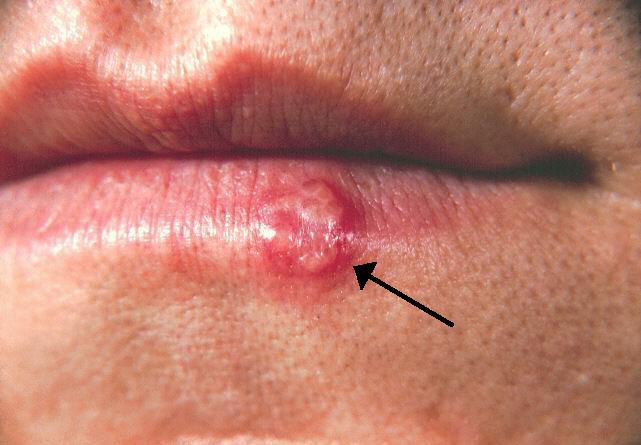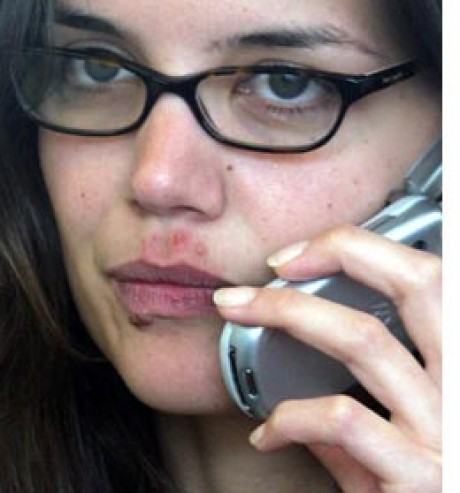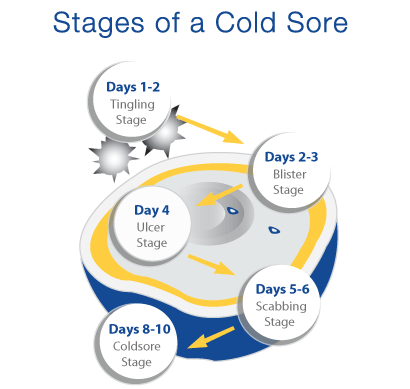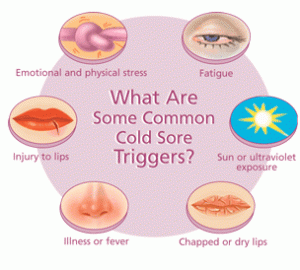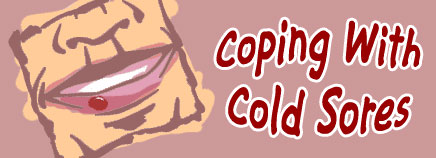
Some of you are consumed with fear. Maybe for some it’s stricken with guilt. In any event this topic is simply another example of not being adequately armed with the knowledge you need. I know exactly what you fear about the topic, so let’s clarify things for you. Let’s discuss cold sores, aka fever blisters. Since this can be bad news, I’ll answer 13 questions you either have or should have about cold sores. You’re welcome to ask more if you have any.
1. What are cold sores?
Cold sores are those painful little blisters you get on or near your lips. You may have single blisters or a small grouping of them.
2. What causes cold sores?
Cold sores are caused by herpes simplex viruses (HSV). Yes. Herpes. Let’s focus on this, and get it straight for you. There are two types of herpes viruses: HSV-1 and HSV-2.
- HSV-1 is the usual cause of oral herpes (cold sores).
- HSV-2 is the usual cause of genital herpes.
Yes, HSV-2 can cause cold sores and HSV-1 can cause genital herpes.
Let me repeat that. Both forms of HSV can cause oral and genital herpes, although that is not usually the case.
3. Why do I get cold sores?
Cold sores are transmitted from contact. That usually means kissing, but it could mean oral sex, mouth-finger-mouth contact, shared razors or utensils.
4. Are there other symptoms I should expect to get with the cold sores?
There are two considerations here:
- The cold sores themselves pass through stages, including tingling and itching, followed by blistering, following by oozing and crusting.
- Additional symptoms may include fever, headache, muscle aches, a sore throat and swollen lymph nodes in your neck.
5. How long do cold sores tend to last?
Even without symptomatic treatment, cold sores are likely to resolve within two weeks.
6. Can I get genital herpes from oral sex?
Yes. Consider using a dental dam or abstaining if you’re uncertain about your partner’s safety.
7. Is there a cure for cold sores?
No, but symptomatic treatment is available.
8. What makes cold sores recur?
Some form of physical or psychological stress may prompt recurrences. Such stressors may include extreme fatigue, fever or infection, menstruation, mental stress and sun exposure.
Additional risk factors for recurrences and complications include severe burns, eczema, cancer chemotherapy, chemotherapy (i.e., anti-rejection drugs) for organ transplants and HIV/AIDS.
9. Can I have problems elsewhere on my body related to cold sores?
Herpes simplex viruses may also create symptoms on the brain, eyes, fingers, liver, lungs and across the skin, particularly in those with weakened immune systems.
10. How can I tell if my partner has this?
You should assume that to be the case. Approximately 90% of adults across the world test positive for herpes simplex virus, which is not the same as saying everyone is in the midst of an active infection. Even still, the virus can be transmitted even when no blisters are present. The presence of a cold sore is suggestive of at least the presence of an active HSV-1 infection.
11. What can I do at home to reduce my risk?
- Avoid skin contact with those displaying the blisters of cold sore.
- If you have cold sores, limit touching other parts of your body, and wash your hand frequently and thoroughly.
- Avoid sharing items, particular those that involve the lips, such as lip balm and utensils.
12. Are there over-the-counter medications and remedies available to help against cold sores?
Docosanol is an over-the-counter cream approved by the Food and Drug Administration for cold sore treatment. It may shorten the duration of symptoms by a day. Other remedies that have shown mixed results in the research include lemon balm, drying agents that include alcohol, lysine stress reduction and simple application of ice or cold water to the blistered area.
13. When should I seek medical assistance for cold sores?
The presence of prolonged (e.g., more than two weeks), especially painful or unusually frequent cold sores or the presence of blistering that occurs in other parts of the body are prompts for seeing your physician. The presence of cold sores, if you have a weakened immune system, is another prompt that should not be ignored.
Feel free to contact your SMA expert consultant with any questions you have on this topic.
Thanks for liking and following Straight, No Chaser! This public service provides a sample of what http://www.SterlingMedicalAdvice.com (SMA) offers. Please share our page with your friends on WordPress, Facebook @ SterlingMedicalAdvice.com and Twitter at @asksterlingmd.
Copyright © 2014 · Sterling Initiatives, LLC · Powered by WordPress


